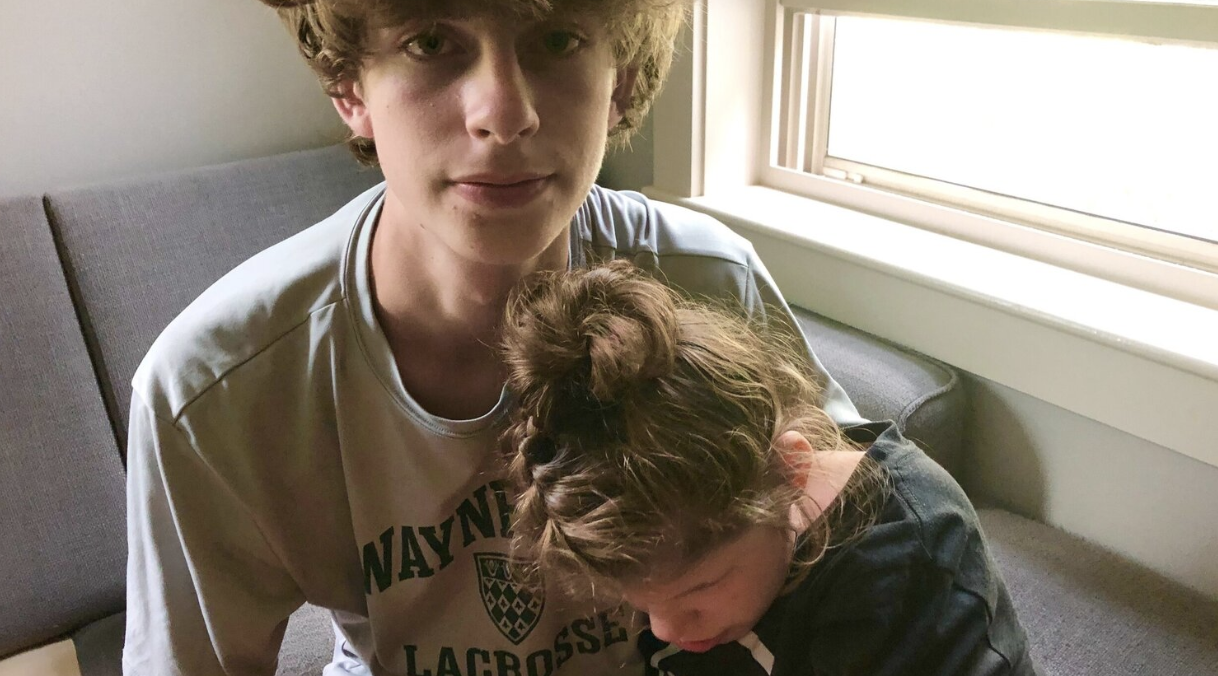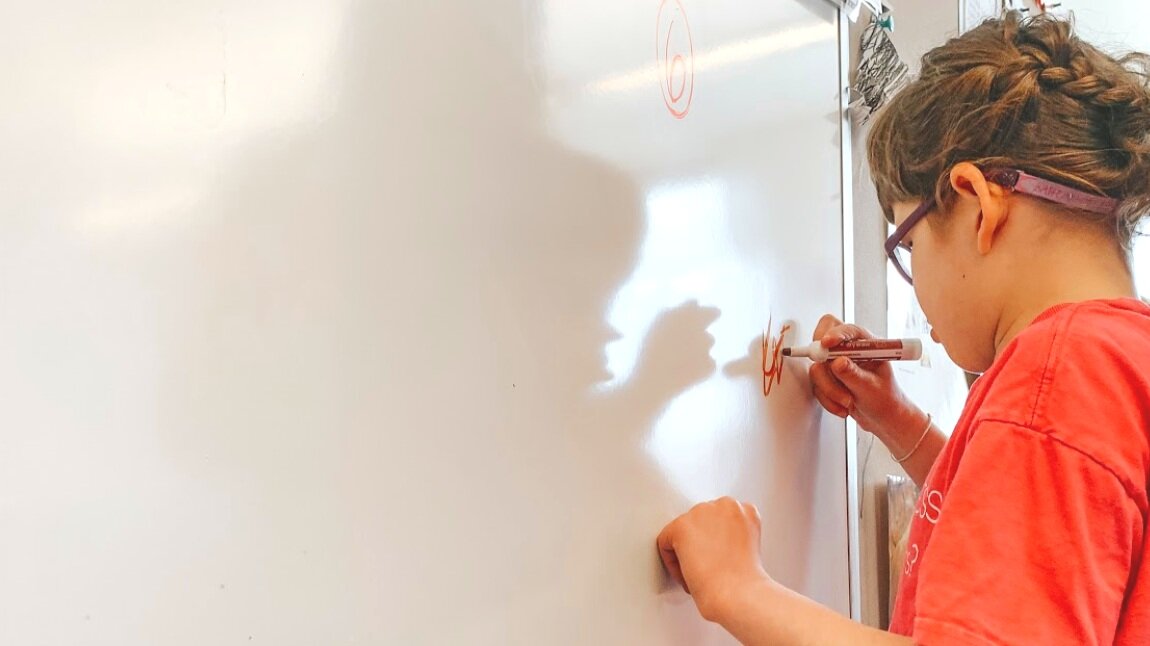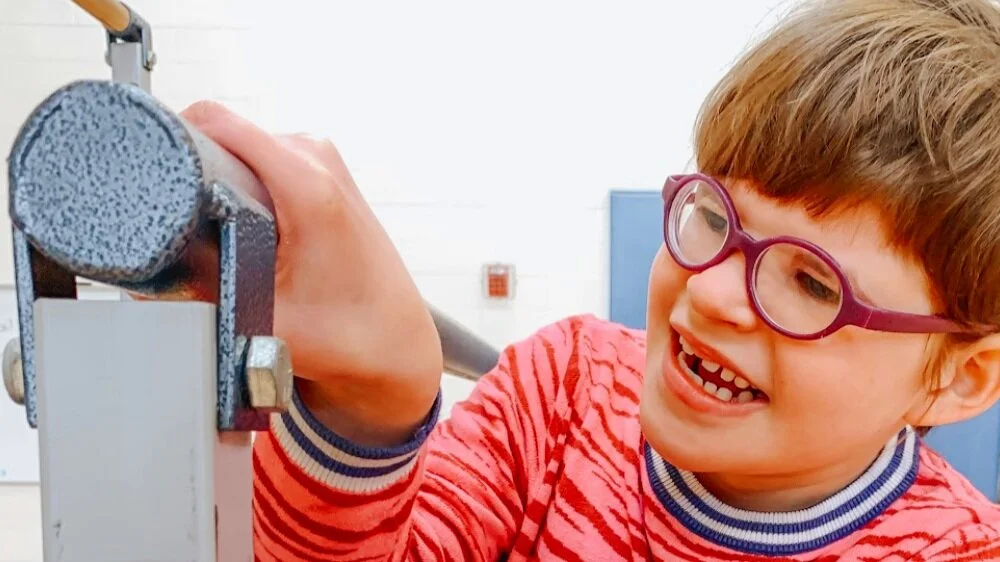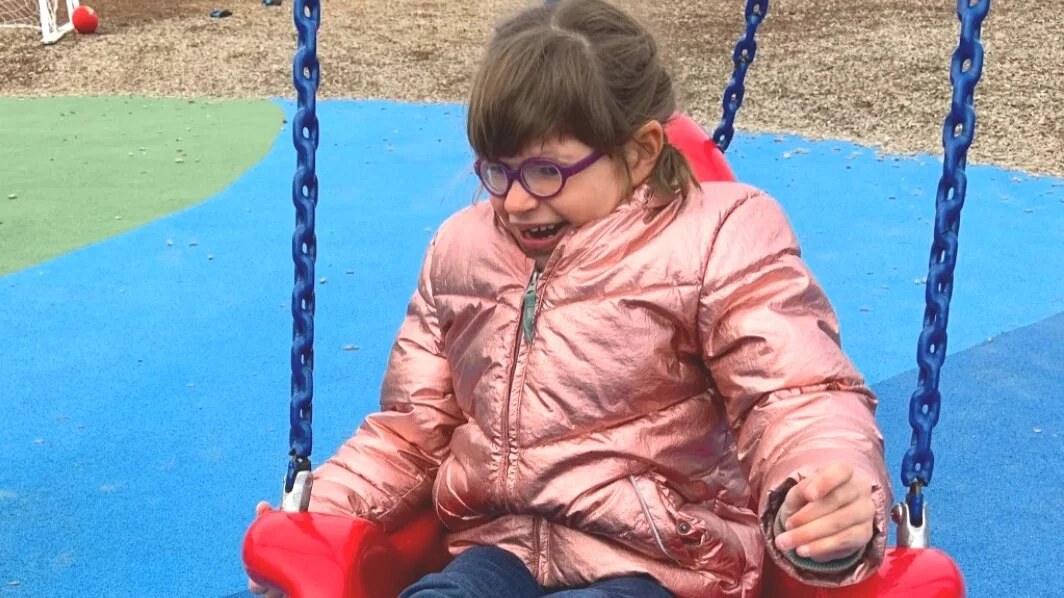Psst! Hey. You. Yeah. I'm talking to you. Can you help me?
Read MoreTop 5 Most Listened-To Episodes of Stronger Every Day
Today is Rare Disease Day. To celebrate our Tess and share stories about her disease, Hao-Fountain Syndrome, I'm counting down the top 5 most listened-to episodes of my podcast Stronger Every Day. #RareDiseaseDay #HaoFountainSyndrome
Coming in at number 5 is ep 344, "Twenty Percent More Tess."
I recorded this in August 2021, right after we witnessed Tess having a generalized tonic-clonic seizure. We saw a major change in her behavior the next day. Click to listen.
http://www.portlandrootsmedia.com/strongerpodcast/2021/8/18/344-twenty-percent-more-tess
Continuing the countdown, number 4 is ep 291, "Named."
In August 2020, after many years, Tess's disease got its name of Hao-Fountain Syndrome at last. This ep tells the story of the name, and how it felt for us to finally get it. Click to listen. #RareDiseaseDay #HaoFountainSyndrome
http://www.portlandrootsmedia.com/strongerpodcast/2020/8/12/291-named
Next in our countdown at number 3 is ep 268, "Included Part 3."
This one comes from March 2020 (mere days before the COVID lockdown), when we attended Tess's IEP meeting and talked about the importance of including her with her mainstream peers. Click to listen. #RareDiseaseDay #HaoFountainSyndrome http://www.portlandrootsmedia.com/strongerpodcast/2020/3/4/268-included-pt-3
The second most listened-to episode ever is ep 324, "It's Go Time."
In March 2021, after years of fundraising by you, Tess Army, our foundation finally embarked on its first research project about Hao-Fountain. Woot! Click to listen. #RareDiseaseDay #HaoFountainSyndrome
http://www.portlandrootsmedia.com/strongerpodcast/2021/3/31/324-its-go-time
And now, the number one most listened-to episode ever of Stronger Every Day is: ep 343, "Tess In the ER, Redux."
This is the one about Tess's second seizure, about how it went down, why, and what we did in its aftermath. Click to listen. #RareDiseaseDay #HaoFountainSyndrome
http://www.portlandrootsmedia.com/strongerpodcast/2021/8/11/343-tess-in-the-er-redux
Snort and Other Languages
Our convos with Tess tend to be short. Usually they end after one word. But today was different.
Read MoreDay One
I have a thrilling announcement that I've been waiting for months and years to share with you. At long last, after many false starts, it's go time.
Read MoreTess has intellectual disability. Here's what it means for her, how we measure it, and what we're working on now.
What does Tess’s intellectual disability diagnosis mean?
Read MoreIncluded - Part 4 of 4
Friends. Where would we be without them? And where would Tess be?
Read MoreIncluded - Part 3 of 4
Tess couldn't be more different from her classmates in her learning style and what she's working on. But socially, she's a lot like them.
Read MoreIncluded - Part 2 of 4
Included. Tess with her classmates, as much as possible. That's what we want to see.
Read MoreIncluded - Part 1 of 4
Tess's education has been super solid for a long time. But recently we realized something that made us want to look a bit deeper into what she does all day at school
Read MoreTess is nonverbal, with a speech disorder, autism, and other issues. Here's how we're trying to help her.
Helping Tess communicate.
Read MoreHere's what we feed Tess. Her diet seems to help with autism, intellectual disability, GI issues, and her speech disorder.
Almost immediately, Tess began to emerge.
Read MoreTess in a Tiny Room
It's like a Samuel Beckett play: a tiny room. People waiting. Including Tess. Have they always been in this room? Will they have to wait for all eternity, because they wait for something that will never take place?
I'm in a room with no windows. The room's maybe six by six. Eight-foot ceiling. Not spacious by any stretch. In the room with me is Tess. The room's pretty empty. There's a table and a couple of chairs. And on the wall is one of those light boxes, the kind with fluorescent bulbs inside that you can switch on and use to view an x-ray. The light box is in grave danger. There's a pretty good chance that within the next few minutes, it will be damaged beyond repair. Damaged by Tess, who can't stop trying to pull it off the wall and throw it at the opposite wall.
How did we get into this room? Why are we here? And how long are we going to stay in here?
Well, to begin with, let's remember that Tess gets tremendous satisfaction from the following two things: food. And routine. With the precision of a Swiss watch, she gets regular meals and snacks at the exact same time, every single day of her life. And on this particular day, we are messing all that up. We are doing this because she is at the dentist. She is about to have some dental work done under anesthesia. And you can't eat before anesthesia. So her last food was at 9:30am. Her procedure's slated for 3:50pm, more than six hours later. When we first got there, we were in this huge waiting room, the kind with multiple Dr. Seuss books, bunch of magazines, some colorful murals meant for kids to look at. There was even a little corner meant for younger patients, where they had one of those large wooden cubes with different puzzles on each side, all involving shapes. Tess exhausted the options in that waiting room pretty quickly. Including the little kid corner. And now the office is running late. So we're in a new waiting room. The one that's six by six.
If you know anything about Tess, you're probably picturing her livid at not getting any food. Her teeth sinking into the nearest arm at any moment, drawing blood.
Side note: this hangry biting actually did happen at one point, a few years back. Tess was getting ready for surgery in Boston, and a nurse was prepping her and got bitten on the arm by our girl. There was blood, followed by several apologies from us to the unfortunate nurse.
Anyway, the interesting thing about hungry Tess in this tiny room is that she isn't all that angry. Sure, she's restless. She'd rather not be cooped up in there. And since we've been waiting for over an hour, she has long since tired of the things we've packed in order to keep her entertained, things like the iPad and her toys from home.
But here's what was impressive about Tess in that room. And Tess all day for that matter. Early on, that morning, my wife had taken Tess aside and talked to her about how this was all gonna go down. The fact that she'd be at school for the morning, but we'd pick her up instead of having her ride the afternoon bus. The fact that her food schedule would be a bit wonky. The fact that we were going to have someone help her go to sleep so they could fix her teeth. The whole deal. My wife laid it out for Tess.
So instead of getting fired up and fussing and trying to bite us and everyone around her, Tess is rolling with it. She's in that room and ready to get out, make no mistake about it. But what nine-year-old wouldn't? Show me a kid who's nine and has been waiting over an hour in super boring waiting rooms, where literally they take her out of a large one, where there's at least a few things to do, and then make her wait in a smaller one where there's zero to do except shatter the light box. Show me any typical nine-year-old who'd find that acceptable and not be kinda getting antsy by this point. She still had smiles on her face. She would still be soothed by humming in her ear. She could be redirected over and over from trying to unplug and shatter the light box. She was still willing to sit with me and talk a bit. She did get in some good hits--the light box took a lickin' and may in the end have been one of the casualties of the day, we don't know. But generally this is a more patient Tess somehow. Maybe she's just growing up and behaving like anyone else her age might behave. Or maybe she listened to my wife and was prepared for all this upheaval in her day.
When the anesthesiologist comes in finally to meet with us and talk it over, Tess hugs him and grabs his thigh as he stands there. He hasn't met the T-Bird before, but he's spent about 30 minutes the night before on the phone with my wife, getting the story about Tess's history of problems with anesthesia. Learning that she has GI issues that used to create a danger of food getting in her airway while she was under sedation, but that we've managed to control that in recent years with diet and medication. Maybe Tess is a bit frustrated and wants to take it out on this guy, now that I think about it. As he stands there in his scrubs talking about the sedation procedure, he has no idea what's coming. But she walks back and forth and suddenly without warning gives this anesthesiologist a quick no-look package check. I'm talking about the quick flick. What maybe one dude does to another dude in the high school locker room. A lightning fast shot to the crotch, causing instant pain and embarrassment to the recipient. There are times when Tess knows exactly what she is doing, and part of me wonders whether this has been one of those times. The anesthesiologist is surprised by the package check but takes it in stride, and only falters briefly in his speech. He gives Tess a gentle squeeze on the shoulder.
When it's go time, they don't let you stand there and watch your kid get sedated and go off to sleep. Instead you say your goodbyes, kiss them on the cheek, and are ushered off to the waiting room, while the nurse walks your kid down the hall away from you. At this point we have done all we can do.
Back in the large waiting room, my wife and I sit. Like I said, the GI stuff is largely under control, but we can never be sure how things are gonna go. We are still thinking about Tess. Hoping that everything is ok. Wishing we could go back there and at least check on her. It feels like a long time before the nurse emerges to tell us that it was all a complete success. That Tess did great. That she's awake and ready for us to come back and get her. We're so relieved.
What's Next
We met our goal of funding the phenotyping study. So what now?
Read MoreCatch Up with Tess
The essential six podcast episodes, with links and everything.
Read MoreIgnore Her At Your Own Peril
THE last thing you want to do in our house if things are going well, is to mention that they are going well.
Read MoreOur Greatest Fear
On the morning of Friday, July 13th, Tess wakes us up. She does this with a cry, as she often does, but this one is different.
Read MoreAt Last
Today, April 7, 2018, is the first-ever USP7 Awareness Day. We've been waiting for years for this. I'm not the only one writing these days about how isolating it is to have an undiagnosed rare disease. I wrote about it four years ago, before we knew about USP7, before we'd found anyone else who has Tess's disease. Here's my blog post from back then.
Ribbons
I constantly see ribbons. Mostly on car bumpers, but sometimes on lapels. The rainbow-puzzle-piece one for autism awareness. The yellow and blue one for Down's Syndrome. Purple for cystic fibrosis.
Thing is, there isn't a ribbon for what Tess has. Mostly because we don't know what she has.
We know she has issues with processing information, both visual and auditory, but we have no diagnosis on that front. She has specific diagnoses as to various parts of her body, like her legs (hip dysplasia) and digestive system (gastroesophageal reflux disease). But as far as an overall diagnosis, one that could explain why she's so far behind other four-year-olds in terms of her language, social skills, and cognitive ability, all we have is "global developmental delay."
All that means is that Tess hasn't met her milestones. She didn't roll over when other kids did, or walk or talk when they did. She's delayed, for sure. But why? Is there a cause?
Our geneticist in Portland keeps a handwritten list of patients she hasn't been able to solve, even after round after round of genetic testing. It's a short list, maybe four or five people long. Tess is on it. The good news is that there's a ton of scary diseases that we now know Tess doesn't have. Also good news: that geneticist turns out to be uber-competitive and, when we told her we would simultaneously start seeing a geneticist at Boston Children's Hospital, she vowed that she, not Boston, would be first to crack the Tess mystery.
The two geneticists are now working together, and they're mapping Tess's genome. This means taking DNA from me, my wife, and our kids, and comparing our DNA with Tess's. She's the only one of the four of us who has these delays, so wherever our DNA differs, that's where the issue is. (I keep joking that they need to locate the gene that makes me continually leave my wallet in public places. I hope not to pass that one to either kid.)
We expect to get the mapping results next month. We've been told not to get our hopes up. If anything, we will probably only be told about a tiny genetic mutation, nothing we'll be able to use in a practical way.
There isn't an awareness week for global developmental delay or random genetic mutations. No ribbon or pin we can wear, and no bumper sticker either. This is okay. We don't need to know what Tess has. There are secret codes, after all, for we parents of globally delayed kids. For example, I am at the pool, in the water holding Tess, and a guy wades over, also holding his four-year-old. I hear him say "occupational therapy" or some other phrase, and I look at him and then we both know. The small talk falls away. We give each other a knowing nod.
We briefly compare notes on the best local resources for funding and for PT, OT and speech. I ask the name of his child, and once I know it I say it aloud, deliberately pronouncing it. He does the same with Tess. I don't know why, but there is something deeply comforting about hearing this other adult--a stranger, really--say Tess's name.
It is like a hundred ribbons.
Meeting Others Like Tess
We've been waiting for almost Tess's entire life to meet someone like her, to meet a family like ours. And it finally happened.
Read MoreScars
It's part of life, at least for us, that we take Tess to the doctor. A lot. She's generally a pretty healthy gal. Not many sicknesses, like coughs or colds. Just a ton of stuff that we have to figure out. Like why her hips don't work. Or why she hasn't grown an inch in about a year.
Read MoreAn Exit Interview from the Toughest Job
Recently Kendra left that preschool. When you leave, they do an exit interview. And one of the questions was, what has been your greatest accomplishment during your time at this preschool? Kendra had a one-word answer: She said Tess.
Read More





